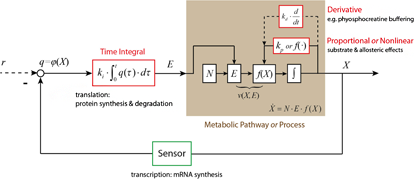Systems and Synthetic Biology: A Glance at Life Science Activities in the Control Systems Community
by Steffen Waldherr and Bayu Jayawardhana
The IEEE Control Systems Society (CSS) is one of the member societies of the IEEE Life Sciences Technical Community, and control systems engineers have much to contribute to research in the life sciences. The purpose of this article is to present recent activities by which these contributions are being made, with a specific focus on systems biology and synthetic biology.
Currently, two out of twenty technical committees (TC) of the IEEE Control Systems Society (CSS) are specifically devoted to life science topics: the TC on Systems Biology, chaired by Bayu Jayawardhana from the University of Groningen, and the TC on Healthcare and Medical Systems, which is chaired by Caterina Scoglio from Kansas State University.
The TC Systems Biology was formerly known as the Technical Committee on Biosystems and Control and was renamed in December 2008. The first chair of the TC in 2008 was Mustafa Khammash and it had 10 members. Currently, the TC has 26 active members. Since its inception, the TC has actively participated in numerous activities that promote systems biology research. One notable activity of the TC is the coordination of special issues on systems biology in IEEE Transactions on Automatic Control and IEEE Transactions on Circuits and Systems in 2008. It has also organized workshops, tutorials, and invited sessions on various topics in systems biology at conferences sponsored by the CSS. For instance, the recent Conference on Decision and Control (CDC) 2014 featured four contributed sessions and two invited sessions on life science topics, among them an invited session on “Context-Dependence in Systems and Synthetic Biology.” Currently, the TC is planning to establish a transnational networking initiative for fostering a stronger research collaboration to address various systems and control challenges in both systems biology, as well as in synthetic biology.
Systems biology applications are an important aspect of scholarly publishing activities within the CSS. The IEEE Control Systems Magazine had a special section on systems biology in 2004, titled “Biochemical Networks and Cell Regulation” [1]. The flagship journal of the CSS, the IEEE Transactions on Automatic Control, published a special issue on systems biology in 2008 [2], which highlighted the roles of regulation and feedback in biological networks. Other control systems journals, which are not affiliated to the CSS, also followed this trend: Automatica published a special issue on systems biology in 2011, edited by F. Allgöwer and F. Doyle. In the same year, the Asian Journal of Control published a special issue “Analysis and Control of Biological Networks,” edited by L. Chen, J. Lam, and Z. Wang.
There is also a range of journals specifically addressing the intersection between control systems engineering and systems biology. Examples are the journal IET Systems Biology, which started in 2005 under the name IEEE Proceedings — Systems Biology, or the recently launched IEEE Life Sciences Letters (LSL), which published its first papers in June this year. The LSL is sponsored by the IEEE Life Sciences Technical Community and its member societies, and its key areas are personalized medicine, pharmaceutical engineering, synthetic biology, and systems biology.
In addition to publications within the control community, the systems biology research within the CSS made its way in high-profile biology and general science journals (Figure 1). For example, in the past decade, members of the TC Systems Biology published in Nature Reviews Molecular Cell Biology [3] and had several papers in the journal Cell, the most prestigious journal in the cell biology field, including an article on intercellular coupling by Liu et al. [4]. Both papers were cited several hundred times and nicely illustrate the impact that control systems engineers can have on basic research in biology.
Click to enlarge.
Figure 1. Control structure for a metabolic pathway. Source: He et al. BMC Systems Biology 2013 7:131, doi:10.1186/1752-0509-7-131
The prominence of life science topics in CSS is also reflected on the plenary and semi-plenary talks in various control conferences, such as IEEE CDC, IFAC World Congress, American Control Conference, and Nonlinear Control Symposium. Recent examples include a plenary talk on “Cybergenetics: Feedback Control of Living Cells at the Gene Level,” delivered by Mustafa Khammash during the last IFAC World Congress 2014 in Cape Town, South Africa, or a plenary talk on “Synthetic Biology: From Parts to Modules to Therapeutic Systems,” delivered by Ron Weiss at the European Control Conference in 2013. Control engineers have also delivered plenary talks at conferences in the biological community, for example, Richard Murray spoke at the Synthetic Biology Conference SB 6.0 in 2013.
Within the field of synthetic biology, where biology meets engineering, many members of the CSS have actively participated in the establishment of various synthetic biology centers in the world and in supervising student teams in the prestigious annual International Genetically Engineered Machine (IGEM) competition. The notion of modularity, optimal control, robust control, and feedback control from control theory become important concepts in the system design of a novel cellular system. In this context, control theory becomes an enabling technology as opposed to using it as an analysis tool in systems biology.
The impact that control systems research can have on life science applications is very clear to control engineers. Biological systems are included as an application domain in the recent report, “The impact of Control Technology” [5], sponsored by the CSS, which highlights accomplishments of control systems technology and its contributions to other fields. The report contains a detailed chapter on “Control of biological systems,” contributed by F. J. Doyle III (president-elect of the CSS) and coauthors, which provides helpful information for those looking to learn more in this area.
References
- IEEE Control Systems Magazine, Issue 4, August 2004.
- M. Khammash, C. Tomlin, and M. Vidyasagar (eds.). Special Issue on Systems Biology, joint publication of IEEE Transactions on Automatic Control and IEEE Transactions on Circuits and Systems, January 2008.
- T. Riley, E. Sontag, P. Chen, and A. Levine, “Transcriptional control of human p53-regulated genes,” Nature Reviews Molecular Cell Biology, vol. 9, no. 5, pp. 402–412, May 2008.
- A. C. Liu, D. K. Welsh, C. H. Ko, H. G. Tran, E. E. Zhang, A. A. Priest, E. D. Buhr, O. Singer, K. Meeker, I. M. Verma, F. J. Doyle, J. S. Takahashi, and S. A. Kay, “Intercellular Coupling Confers Robustness against Mutations in the SCN Circadian Clock Network,” Cell, vol. 129, no. 3, pp. 605–616, Apr. 2007.
- T. Samad and A.M. Annaswamy (eds.), “The Impact of Control Technology,” IEEE Control Systems Society, 2011, available at www.ieeecss.org.
Contributors
 Steffen Waldherr is an assistant professor for theory of complex networks at the Otto-von-Guericke-University, Magdeburg, Germany. His research interests focus on systems engineering methods for biomolecular networks and cell-biological systems, including modeling, uncertainty and robustness analysis, optimization, non-linear dynamics, and cell populations models.
Steffen Waldherr is an assistant professor for theory of complex networks at the Otto-von-Guericke-University, Magdeburg, Germany. His research interests focus on systems engineering methods for biomolecular networks and cell-biological systems, including modeling, uncertainty and robustness analysis, optimization, non-linear dynamics, and cell populations models.
Read more
 Bayu Jayawardhana is a university reader in the Faculty of Mathematics and Natural Sciences at University of Groningen, Netherlands. His research interests are on the analysis of nonlinear systems, mechatronics, systems, and synthetic biology.
Bayu Jayawardhana is a university reader in the Faculty of Mathematics and Natural Sciences at University of Groningen, Netherlands. His research interests are on the analysis of nonlinear systems, mechatronics, systems, and synthetic biology.
Read more








 Richard M. Murray is currently the Thomas E. and Doris Everhart Professor of Control & Dynamical Systems and Bioengineering at Caltech. Murray's research is in the application of feedback and control to networked systems, with applications in biology and autonomy.
Richard M. Murray is currently the Thomas E. and Doris Everhart Professor of Control & Dynamical Systems and Bioengineering at Caltech. Murray's research is in the application of feedback and control to networked systems, with applications in biology and autonomy.  Steffen Waldherr is an assistant professor for theory of complex networks at the Otto-von-Guericke-University, Magdeburg, Germany. His research interests focus on systems engineering methods for biomolecular networks and cell-biological systems, including modeling, uncertainty and robustness analysis, optimization, non-linear dynamics, and cell populations models.
Steffen Waldherr is an assistant professor for theory of complex networks at the Otto-von-Guericke-University, Magdeburg, Germany. His research interests focus on systems engineering methods for biomolecular networks and cell-biological systems, including modeling, uncertainty and robustness analysis, optimization, non-linear dynamics, and cell populations models.  Bayu Jayawardhana is a university reader in the Faculty of Mathematics and Natural Sciences at University of Groningen, Netherlands. His research interests are on the analysis of nonlinear systems, mechatronics, systems, and synthetic biology.
Bayu Jayawardhana is a university reader in the Faculty of Mathematics and Natural Sciences at University of Groningen, Netherlands. His research interests are on the analysis of nonlinear systems, mechatronics, systems, and synthetic biology.